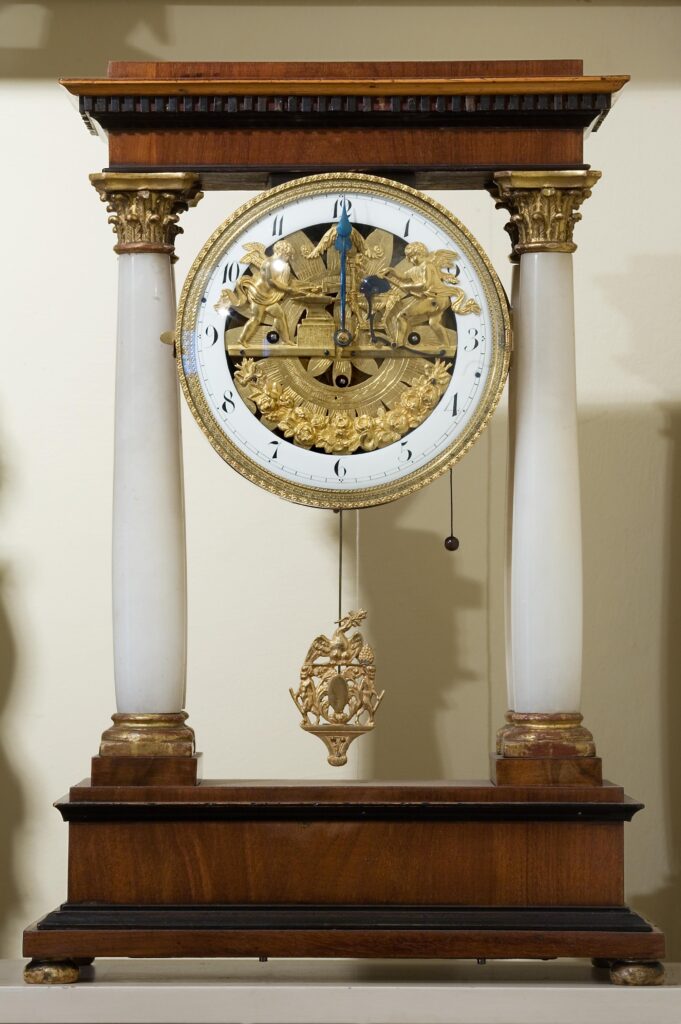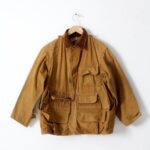In a world increasingly dominated by fast fashion and disposable trends, the vintage handkerchief emerges as a timeless emblem of elegance and nostalgia. These delicate squares of cloth, often richly embroidered or adorned with intricate patterns, tell stories of generations past, serving not just as practical items but as cherished keepsakes that preserve memories and traditions. The vintage hankie encapsulates a unique blend of artistry and sentiment, embodying both the craftsmanship of bygone eras and the personal histories of those who once held them close. As we delve into the charm and significance of these seemingly simple accessories, we uncover a tapestry woven with threads of culture, fashion, and heartfelt sentiment that continues to resonate in today’s world.
The Allure of Vintage Hankies: A Journey Through Time
Whether used for practical purposes or displayed as delicate works of art, vintage hankies encapsulate a timeless charm that transcends generations. These elegant pieces of fabric often tell stories of the past, stitched with nostalgic craftsmanship and adorned with intricate patterns and vibrant colors. Many of these fine handkerchiefs were once a vital part of a lady’s attire, serving both functional and decorative roles. From floral prints to lace trims, their designs evoke a sense of elegance and a connection to a different era, where every detail mattered. Owning a vintage hankie is akin to possessing a piece of history, a tangible reminder of the artistic expressions and social customs of bygone days.
The allure of these vintage treasures extends beyond their beauty; they also offer an opportunity for creative repurposing. Enthusiasts have found innovative ways to incorporate them into modern life, making them a popular choice for:
- Home Decor: Frame them or use them as table centerpieces.
- Fashion Accessories: Tie the hankies around purses or wear them as hair accessories.
- Gift Wrapping: Use them to wrap presents for a unique touch.
Each piece is a reflection of individuality, allowing wearers to express personal style and historical appreciation in their daily lives. The journey of vintage hankies continues, bringing together style, history, and sustainability in a single fabric square.
Collecting Vintage Hankies: Tips for New Enthusiasts
For those stepping into the charming world of vintage hankies, understanding where to begin can feel overwhelming yet exciting. A key element of collecting is to explore different patterns and styles. From delicate florals to intricate lace borders, each hankie tells a unique story. Consider starting with these popular designs that showcase the era’s flair:
| Design Style | Era | Features |
|---|---|---|
| Floral Prints | 1940s-1950s | Colorful blossoms, cheerful and vibrant |
| Monograms | 1900s-1920s | Embroidered initials, luxurious feel |
| Art Deco | 1920s-1930s | Geometric patterns, bold colors |
As you delve deeper, consider learning about the fabrics used in vintage hankies. Most are crafted from cotton, linen, or silk, each offering a distinct touch and durability. Keep an eye out for hand-stitched details or unique embellishments that may add value. Additionally, seeking advice from fellow collectors or joining a community can significantly enrich your experience by providing you with insider tips on maintenance and preservation, such as avoiding direct sunlight and ensuring proper storage methods. Happy collecting!
Caring for Your Vintage Hankies: Cleaning and Storage Best Practices
Preserving the beauty of your vintage hankies requires careful attention. When it comes to cleaning, always opt for gentle methods that honor the delicate nature of the fabric. Start by hand washing your hankies in cool water with a mild detergent, ensuring not to scrub too vigorously. After rinsing thoroughly, avoid wringing them out; instead, gently press them between two clean, dry towels to absorb excess moisture. If your hankies have stubborn stains, approach them with a mix of patience and kindness: soak the stained area in a solution of water and white vinegar before washing, testing on a small, inconspicuous spot first to prevent any discoloration. Remember to air dry them away from direct sunlight to maintain their colors and prevent fabric degradation.
Storage practices play a significant role in maintaining the integrity of your collection. Use breathable fabric pouches or acid-free tissue paper to wrap each hankie, which helps prevent moisture buildup and discoloration. When storing, arrange them flat in a cool, dry place, ensuring that they are not crushed or overstuffed. Here’s a quick reference table for effective storage tips:
| Storage Tips | Description |
|---|---|
| Breathable Pouches | Use cotton or linen pouches for moisture control. |
| Acid-Free Tissue | Wrap them individually to prevent snagging. |
| Cool, Dry Areas | Avoid humidity and extreme temperatures. |
Styling with Vintage Hankies: Creative Ways to Incorporate Them into Modern Fashion
Injecting a touch of nostalgia into your wardrobe doesn’t have to be daunting. Vintage hankies, once reserved for grandma’s purse, can play an innovative role in modern fashion. One quirky approach is using them as statement accessories. Knot a colorful hankie around your wrist for a pop of color, or tie it around your handbag’s handle for a playful twist. They can also double as chokers or headbands, lending a sophisticated edge to casual outfits. Layering is another method; drape multiple hankies in varying sizes and patterns around your neck for a rich texture that is both chic and personal.
For those daring to take their style a step further, consider using vintage hankies in DIY fashion projects. Their lightweight fabric makes them perfect for creating unique hair accessories, such as scrunchies or hair clips. Alternatively, sew a few together to form a one-of-a-kind pocket square or decorative patch for your favorite denim jacket. If you’re feeling extra creative, transform them into a custom belt or head-turning brooch. The possibilities are limited only by your imagination, and by merging the old with the new, you can curate a style that’s truly your own.
The Cultural Significance of Vintage Hankies: Stories Woven into Fabric
Vintage handkerchiefs are more than just delicate pieces of fabric; they are tangible links to bygone eras, carrying the whispers of the stories woven into them. Each fold and fray tells tales of love and loss, celebration and mourning, encapsulating human emotions in a medium that transcends time. Traditional patterns and color schemes mirror the cultures and values of the periods they represent. Florals, monograms, and geometric designs evoke nostalgia, reminding us of the artistry and craftsmanship that went into their creation. These pieces serve as a testament to the social customs of their time, often gifted during significant life events such as weddings, births, or farewells, making them cherished heirlooms filled with personal narratives.
| Era | Pattern | Significance |
|---|---|---|
| Victorian | Floral | Symbols of romance and courtship |
| 1920s | Art Deco | Representing modernity and innovation |
| 1950s | Polka Dots | Capturing post-war optimism and joy |
As society evolved, so did the role of the handkerchief. Initially utilitarian items for personal hygiene, they morphed into fashionable accessories, highlighting the importance of social status. For many, they were an essential part of daily attire—used as a statement piece, a display of social etiquette, or as a canvas for artistic expression. The allure of these vintage pieces lies in their ability to reflect timeless trends while also serving as conversation starters, eliciting memories and stories from those who encounter them. Whether tucked into a pocket or displayed within a collection, vintage handkerchiefs remind us of the intertwined nature of fabric and history, connecting generations through shared experiences and emotions.
Where to Find Authentic Vintage Hankies: Marketplaces and Online Resources
Exploring the world of vintage handkerchiefs opens a treasure trove of history and craftsmanship, and knowing where to hunt for these delicate gems can elevate your collection. Flea markets and vintage fairs often feature stalls brimming with unique finds, allowing you to sift through various designs and materials. Some popular venues include:
- Local Flea Markets: Check your area for recurring events that focus on antiques and vintage goods.
- Estate Sales: Attend estate sales or garage sales, where you might uncover family heirlooms.
- Antique Shops: Don’t overlook small antique shops; they may hold a few unique hankies.
In the digital age, online resources have become invaluable in the hunt for vintage hankies. From dedicated vintage shops to popular online marketplaces, the options are abundant. Some noteworthy sources include:
- Etsy: A hub for handmade and vintage items, you’ll often find unique, curated selections.
- eBay: A classic marketplace with a wide array of auction listings for those looking for competitive prices.
- Facebook Marketplace: Local sellers often list rare vintage items, making it easy to find great deals nearby.
Q&A
Q&A: Exploring the Charm of Vintage Hankies
Q1: What exactly defines a vintage hankie?
A1: A vintage hankie is generally considered to be a handkerchief that is at least 20 years old, often characterized by intricate designs, unique fabrics, and exquisite craftsmanship. These delicate pieces can be made from materials like cotton, linen, or silk, and they reflect the fashion trends and social customs of their respective eras.
Q2: How can someone identify a genuine vintage hankie?
A2: Identifying a genuine vintage hankie involves a few key factors. Check for labels that indicate the brand or makers, examine the stitching and hems for quality, and explore the fabric for any wear or discoloration that might indicate its age. Additionally, researching common motifs or styles from specific decades can help in recognizing their authenticity.
Q3: What kinds of designs and patterns can be found on vintage hankies?
A3: Vintage hankies come adorned with a wide array of designs and patterns, including floral prints, lace trims, geometric shapes, and seasonal themes. The artistry may also reflect cultural motifs or significant historical moments, making each piece a small canvas that tells a story.
Q4: Are vintage hankies still relevant in modern fashion?
A4: Absolutely! Vintage hankies can serve as quirky accessories that add a touch of nostalgia to contemporary outfits. They can be used as headbands, tied around handbags, or even framed as decorative wall art. Their timeless appeal continues to inspire fashion enthusiasts and collectors alike.
Q5: How should one care for vintage hankies?
A5: Proper care is essential to maintaining the beauty of vintage hankies. Handwashing them in cold water with gentle soap is recommended for cleaning. Avoid vigorous scrubbing or soaking, as this can damage the fabric and patterns. After washing, lay them flat to dry and iron them on a low setting, if necessary, to restore their crispness.
Q6: Where can someone find authentic vintage hankies?
A6: Vintage hankies can be found in various places, including thrift stores, antique shops, estate sales, and online marketplaces like Etsy or eBay. Collectors often enjoy exploring flea markets or vintage fairs, where unique finds await. Building relationships with local sellers can also yield valuable tips on sourcing quality pieces.
Q7: What makes collecting vintage hankies appealing to enthusiasts?
A7: The appeal of collecting vintage hankies lies in their combination of artistry, nostalgia, and history. Each hankie carries with it stories of the past, evoking memories of moments shared, places visited, and styles adored. Collectors enjoy the thrill of the hunt, connecting with the past through their delicate, tangible remnants of bygone eras.
Q8: Can vintage hankies be repurposed? If so, how?
A8: Yes, vintage hankies can be beautifully repurposed! They can be transformed into unique quilts, framed as art, or even sewn into trendy bags and accessories. Their soft fabrics and various sizes make them excellent candidates for creative DIY projects. From table linens to gift wraps, the possibilities are limited only by one’s imagination.
Q9: Are there any misconceptions about vintage hankies that you would like to clarify?
A9: One common misconception is that vintage hankies are solely for practical use, like wiping one’s hands or face. While they served these functions historically, today’s vintage hankies are often more valued for their aesthetic and collectible nature. They can be appreciated as beautiful artifacts of cultural history and are embraced for their artistic value rather than simply their utility.
Q10: What advice would you give someone just starting their vintage hankie collection?
A10: Start by exploring a variety of styles and fabrics to understand what appeals to you personally. It’s helpful to keep an open mind and a keen eye for details like craftsmanship and patterns. Join forums or groups dedicated to vintage textiles to connect with other enthusiasts, share tips, and learn about the history behind the pieces you collect. Most importantly, have fun and enjoy the journey!
To Conclude
As we draw the curtain on our exploration of the vintage hankie, it becomes evident that this simple piece of fabric is much more than a mere accessory; it is a testament to the artistry, history, and emotion woven into the fabric of our lives. From its practical beginnings as a utilitarian item to its current status as a cherished collector’s piece, the vintage hankie embodies nostalgia and craftsmanship, inviting us to reflect on the moments it has witnessed.
Whether you are a seasoned collector or a casual admirer, the allure of these delicate handkerchiefs is undeniable. They whisper stories of days gone by, had their folds kissed by the hands of countless owners, and now hold the potential to become part of your narrative. So, the next time you encounter a vintage hankie, pause for a moment to appreciate its history, the hands that have touched it, and the memories it holds. Like a well-thumbed book or a favorite piece of jewelry, the vintage hankie reminds us that the beauty of the past is never truly lost; it lives on, stitched into the fabric of our present.


